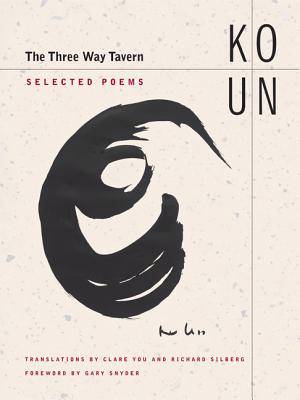
- Afhalen na 1 uur in een winkel met voorraad
- Gratis thuislevering in België vanaf € 30
- Ruim aanbod met 7 miljoen producten
- Afhalen na 1 uur in een winkel met voorraad
- Gratis thuislevering in België vanaf € 30
- Ruim aanbod met 7 miljoen producten
Zoeken
Omschrijving
Ko Un, the preeminent Korean poet of the twentieth century, embraces Buddhism with the versatility of a master Taoist sage. A beloved cultural figure who has helped shape contemporary Korean literature, Ko Un is also a novelist, literary critic, ex-monk, former dissident, and four-time political prisoner. His verse--vivid, unsettling, down-to-earth, and deeply moving--ranges from the short lyric to the vast epic and draws from a poetic reservoir filled with memories and experiences ranging over seventy years of South Korea's tumultuous history from the Japanese occupation to the Korean war to democracy. This collection, an essential sampling of his poems from the last decade of the twentieth century, offers in deft translation, as lively and demotic as the original, the off-beat humor, mystery, and mythic power of his work for a wide audience of English-speaking readers. It showcases the work of a man whom Allen Ginsberg has called "a magnificent poet, a combination of Buddhist cognoscente, passionate political libertarian, and naturalist historian," who Gary Snyder has said is "a real-world poet!" who "outfoxes the Old Masters and the young poets both," and who Lawrence Ferlinghetti has described as "no doubt the greatest living Korean Zen poet today."
Specificaties
Betrokkenen
- Auteur(s):
- Uitgeverij:
Inhoud
- Aantal bladzijden:
- 184
- Taal:
- Engels
Eigenschappen
- Productcode (EAN):
- 9780520246133
- Verschijningsdatum:
- 17/04/2006
- Uitvoering:
- Paperback
- Formaat:
- Trade paperback (VS)
- Afmetingen:
- 156 mm x 203 mm
- Gewicht:
- 258 g

Alleen bij Standaard Boekhandel
+ 65 punten op je klantenkaart van Standaard Boekhandel
Beoordelingen
We publiceren alleen reviews die voldoen aan de voorwaarden voor reviews. Bekijk onze voorwaarden voor reviews.











